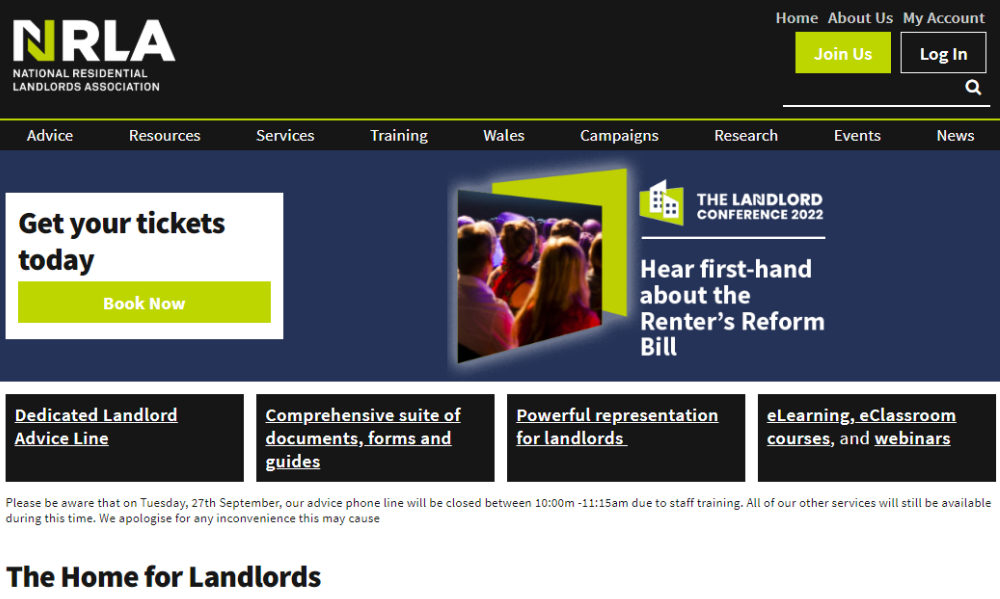A4.13 Landlord Licence¶
In the UK, landlords must obtain a licence to rent out their property in certain circumstances, otherwise they face fines or prosecution. Generally, this can be divided into several scenarios:
Property rental licences (categorised as: HMO licences and selective licensing)
Some property types or areas are unrestricted (where a licence is not required for renting, but this should be verified)
The landlord has a legal agreement with an agent or intermediary (sub-letting is generally illegal unless the tenant has a contract with the landlord)
The categories of rental property licences are as follows:
1. House in Multiple Occupation (HMO) Licence
What is an HMO licence?
It means that individual rooms within a property are rented out to different tenants, with at least three people sharing the accommodation. In this case, the landlord needs to enquire with the local council whether an HMO licence is required. For example, a property with three bedrooms rented to three different individuals who are not part of the same household but share common areas like the living room, kitchen, and garden.
The HMO regulations discussed here primarily apply to England and Wales (note: specific rules for HMOs in Scotland and Northern Ireland differ). The requirements also vary:
Small HMO: For properties with fewer occupants, smaller properties, or those in specific locations – for instance, around three tenants, or very small properties where the location and layout are factors. The landlord must always check with the council. If the council, upon inspection, requires the landlord to have an HMO licence, then the landlord must apply for one.
Large HMO: For properties with more occupants. This is mandatory for properties meeting all these criteria: (1) Five or more tenants living there who are not from one household; (2) They share toilet, bathroom or kitchen facilities; (3) At least one tenant pays rent (or their employer pays it for them). All large HMOs must have an HMO licence.
Important Notes:
An HMO licence is valid for a maximum of five years. Remember to renew it before it expires to avoid penalties.
The HMO licence can be applied for by the landlord themselves, or by a qualifying agent or intermediary acting on their behalf.
The council charges a fee for the HMO licence application. The cost is approximately £140 per year, but this can change and also varies by council area. The £140 per year figure mentioned here is for reference only.
To successfully obtain an HMO licence, you must typically meet these requirements:
The property is suitable for the number of occupants (i.e., the size and facilities are adequate for the number of residents, preventing overcrowding).
The landlord, agent, or manager is deemed 'fit and proper' (e.g., no relevant criminal record, no prior breaches of landlord laws or codes of practice).
Provide the council with a valid annual gas safety certificate.
Install and maintain working smoke alarms.
Provide safety certificates for all electrical appliances when requested by the council.
Further Important Points:
(1) When granting the HMO licence, the council may attach specific conditions to it, such as requiring improvements to the property's facilities. They will notify you of these during the application process. You can appeal against any conditions you disagree with.
(2) Renting out a property that legally requires an HMO licence without having one can result in an unlimited fine (meaning there is no upper limit, determined case by case). For serious offences, prosecution and a criminal record are possible.
(3) Before preparing to rent, proactively ask your council if your property falls under the HMO licensing scheme. Clarify the process, fees, required documents, necessary actions, and post-application obligations. Prepare in advance to avoid issues.
2. Selective Licensing
What is Selective Licensing?
This is where the local council selectively mandates that properties in specific areas must obtain a licence to be rented out. Not all properties require this licence, only those in designated areas or meeting specific criteria set by the council.
Which properties require a Selective Licence?
Generally, there are no fixed, universal rules. The council decides which individual properties or areas require selective licensing based on local circumstances. For example, properties in areas with high crime rates might be designated as requiring a selective licence to be rented out legally. Renting without a required licence can lead to substantial fines and other penalties.
The image below illustrates the types of properties that generally require a selective licence:
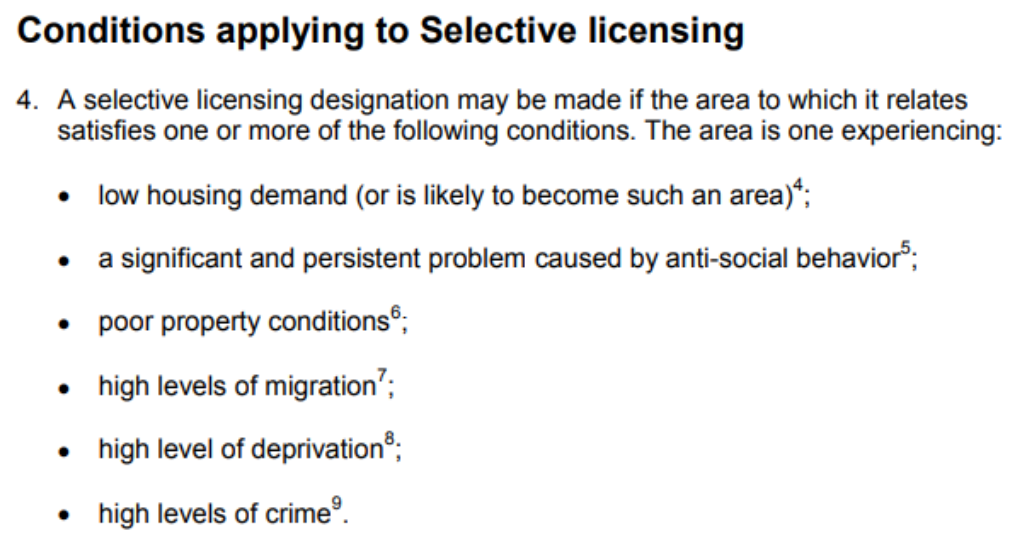
For more detailed information about selective licensing, you can view the full PDF on the official website
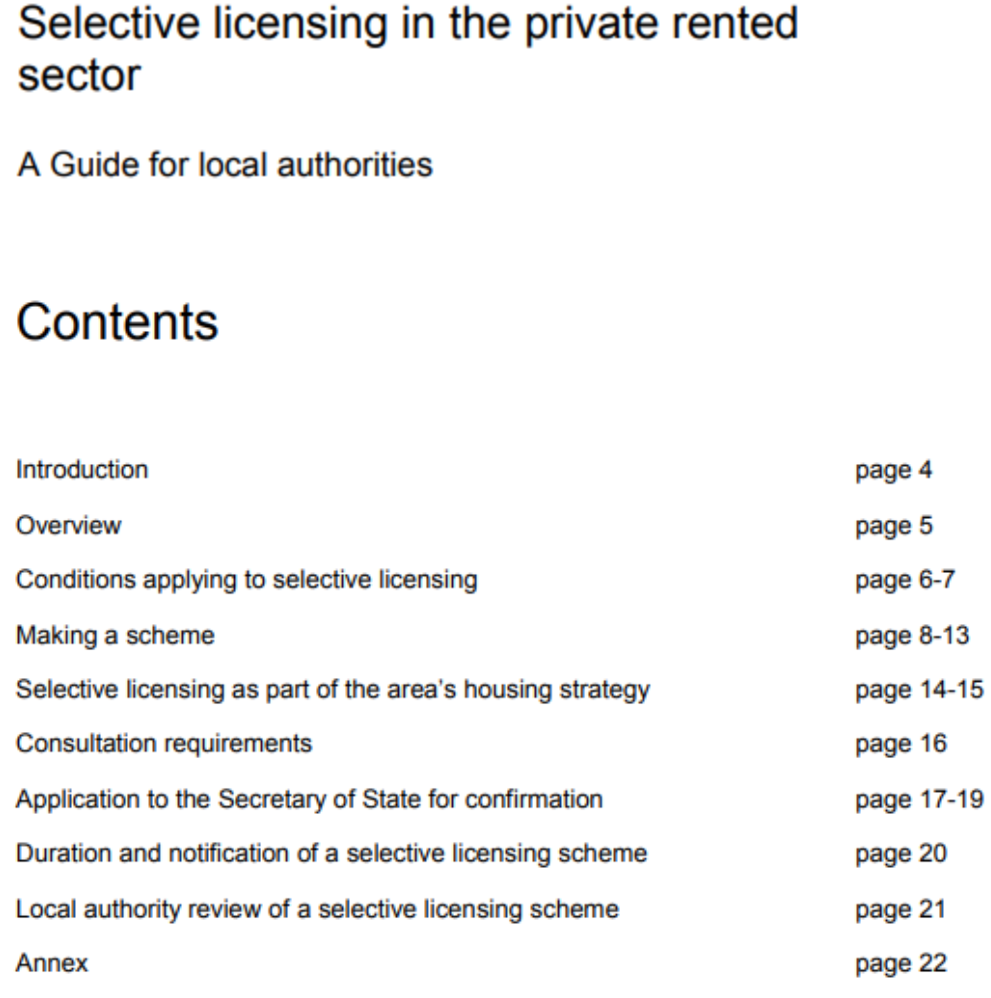
Which properties generally do not require a Selective Licence? As shown below:
Holiday lets
Business premises
Student halls of residence (where the university is the owner/manager)
Properties where the tenant is a family member
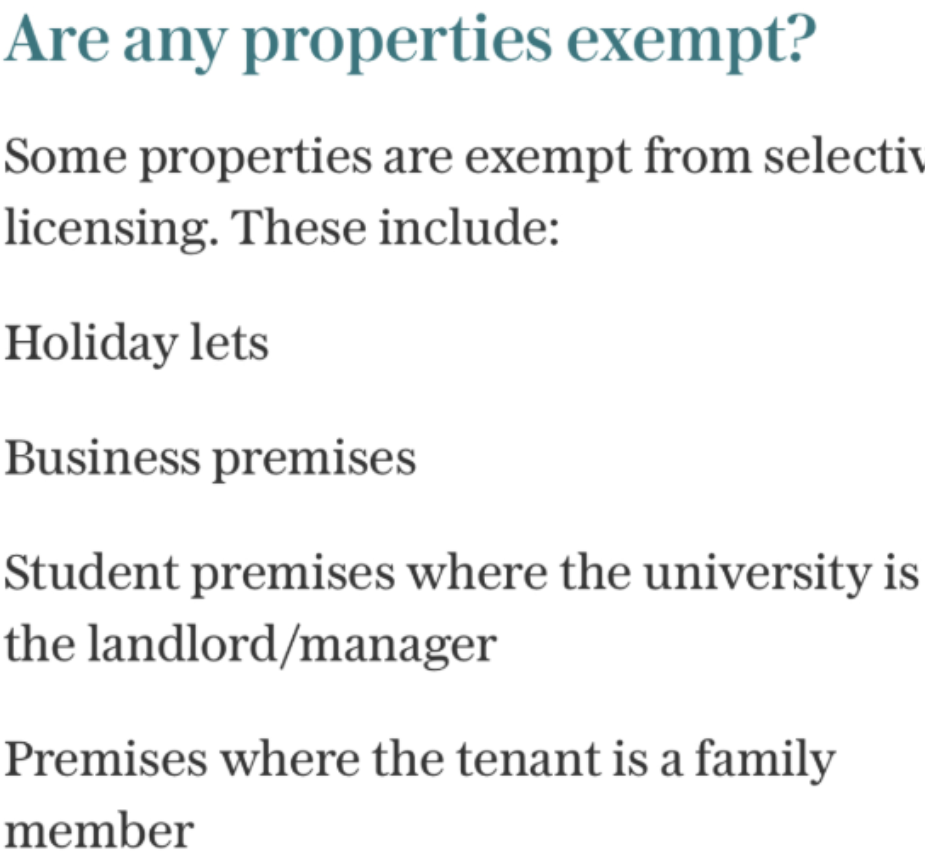
Please note: the key points are similar to those for the HMO licence mentioned previously. The licence is also valid for 5 years and must be renewed before it expires. The landlord can apply for it themselves, or an appointed agent or letting agency can apply on their behalf. Renting out a property that legally requires this licence, without having obtained one, can result in fines and potential prosecution. Typically, the maximum fine for a selective licensing offence can be up to £30,000 per instance.
How do you apply for an HMO licence or a Selective Licence?
Apply directly through your local council. Generally, whether it's for an HMO or selective licensing, if you intend to rent out your property in the UK, it is best to ask your council beforehand whether you need to apply for either of these licences, or if any additional rental licences or documents are required. Also, be sure to clarify any specific obligations .
You can usually apply by downloading and completing the application form online. Please be aware that the specific form linked below may not always be the correct one, as regulations can change. Always check with your local council for the current procedure.
Application form link:
https://www.gov.uk/government/publications/form-hmo-applications-relating-to-licensing-of-houses-in-multiple-occupation-hmos-and-selective-licensing
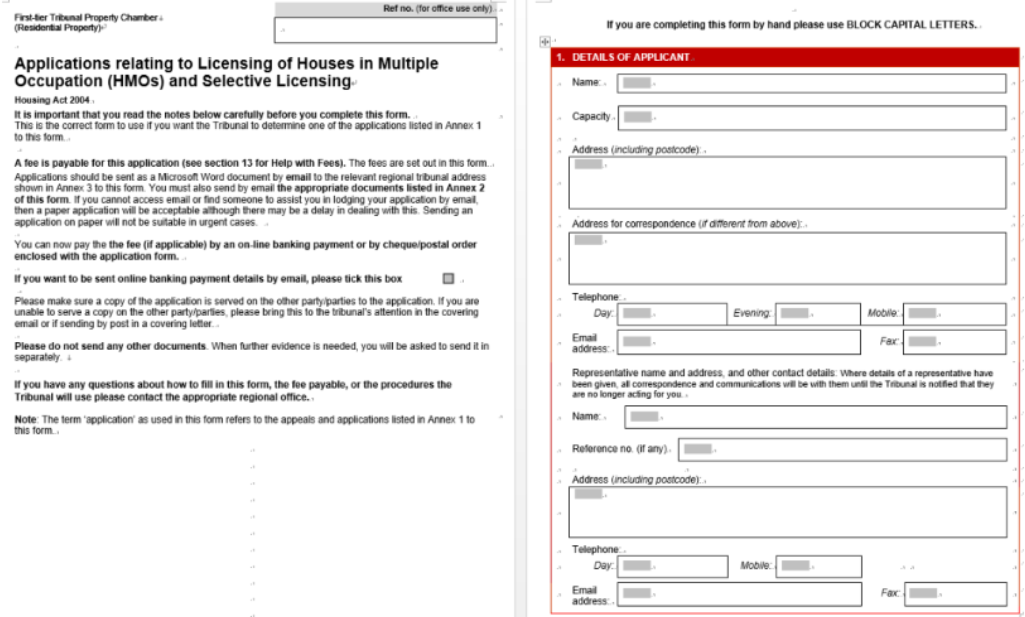
Please note: Generally, renting to a single family does not require a licence, but this depends on the circumstances. For example, if the property's location or other specific conditions fall under a selective licensing scheme, then the property would still require a selective licence. Furthermore, purpose-built student halls of residence are typically exempt from licensing, but they must meet specific criteria to qualify. Simply renting a house entirely to students does not automatically classify it as an official student hall.
A friend of mine, who has lived in the UK for a long time, started his journey as a landlord during a period when property investment and rentals were widely discussed. He began by living in his own studio flat, then went on to purchase several properties in the UK specifically to rent them out. This type of investment is known as 'Buy-to-Let'. From my conversations with him, I learned that he primarily chose properties near universities, in areas with a significant Chinese community, good safety records, and convenient access to supermarkets – often terraced houses. Essentially, he concentrated his purchases in one specific location rather than spreading them out. He enlisted a professional agency to manage the properties, though he spent considerable time learning the ropes himself initially before handing over full management. He also works with a solicitor to mitigate potential risks.
If you are also considering becoming a landlord in the UK, you can refer to the official government guide for landlords via this link:
https://www.gov.uk/browse/housing-local-services/landlords
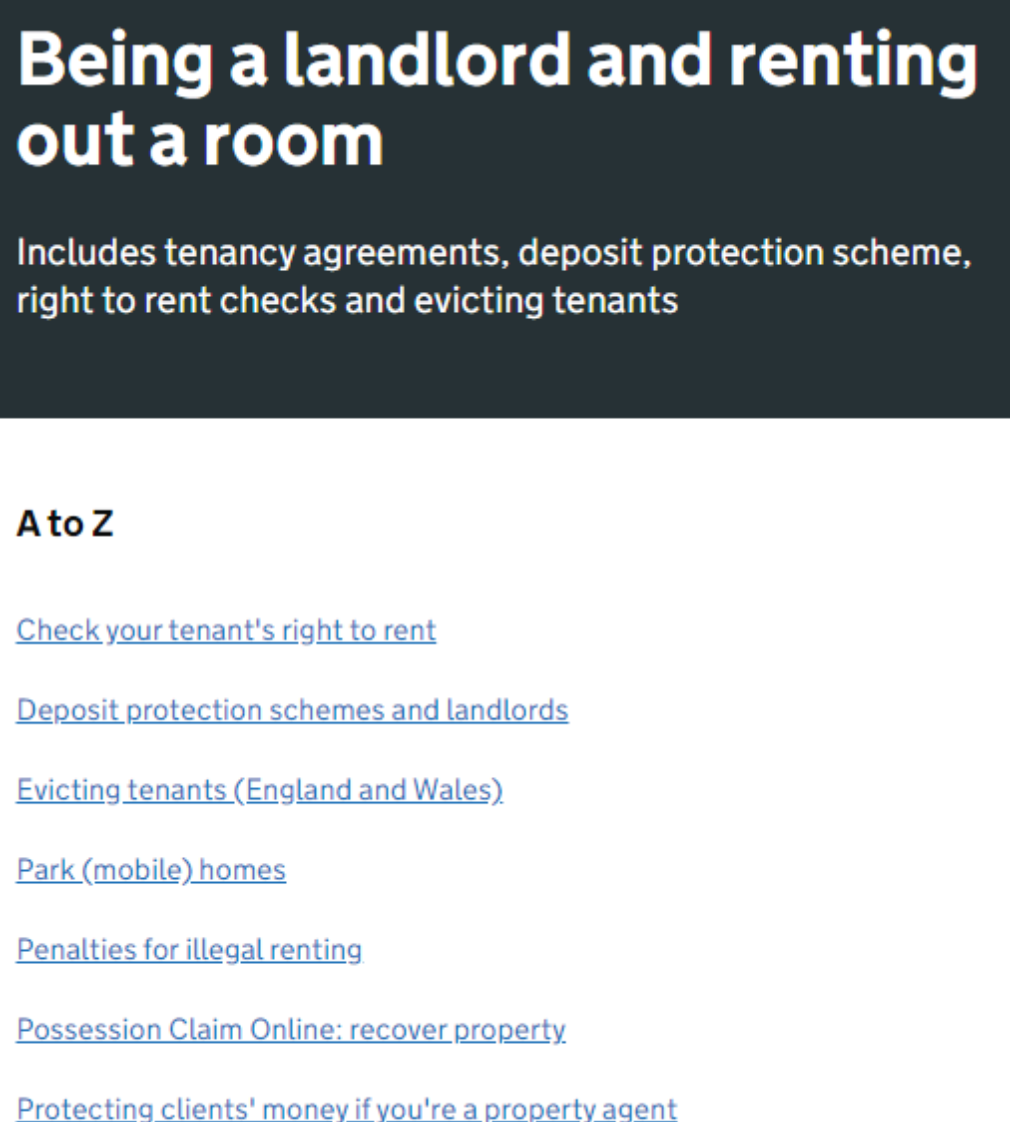
National Residential Landlords Association (NRLA): https://www.nrla.org.uk/
